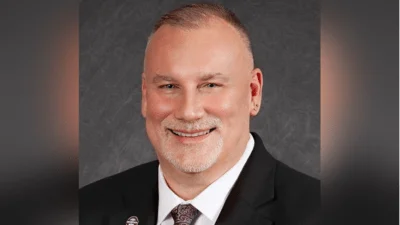Illinois State Board of Education met Sept. 19.
Here are the minutes provided by the board:
ROLL CALL Chair of the Board Steven Isoye called the meeting to order at 8:30 a.m.
Chair Isoye announced that the Board meeting was being audio-cast live over the internet and video recorded.
Chair Isoye asked the clerk to call the roll. A quorum was present with eight members physically attending. Dr. James Anderson was absent. State Superintendent Dr. Tony Sanders was also in attendance.
Members Present:
Dr. Steven Isoye, Chair of the Board
Dr. Donna Leak, Vice Chair
Dr. Christine Benson, Secretary
Dr. Sherly Chavarria
Roger Eddy
Laura Gonzalez
Dr. Anna Grassellino
Dr. Patricia Nugent
Members Absent:
Dr. James Anderson
PUBLIC PARTICIPATION
Chair Isoye reminded those in attendance of the Public Participation Policy and the sign-up procedures for today’s meeting.
Rose Bronstein with Buckets over Bullying spoke on House Bill 3425, which pertains to school bullying policies. She noted that 43% of Chicago teens have reported being cyberbullied, and 91% have seen hate speech online. She mentioned the prevalence of cyberbullying, which is the second most common discipline issue at schools these days, and she said that children are four times more likely to commit self-harm, including suicide, after experiencing cyberbullying. Ms. Bronstein lost her son, Nate Bronstein, to suicide following cyberbullying. She said that HB 3425 is meant to make schools safer but is not having the intended effect, with non-enforcement allowing some schools to ignore the policy of posting bullying guidelines. She added that there are misconceptions regarding ISBE’s role in enforcing the policy and advocated for holding institutions accountable, requiring digital safety curriculum, and mandating training for educators on bullying.
Joe McGinnis with Collinsville Area Vocational Center spoke on Career and Technical Education (CTE) funding. He explained that his area vocational center (AVC) had flourished in recent years, growing from 330 students to 540 in five years, with 100 students turned away due to lack of capacity. Mr. McGinnis said there were plans to expand the center to serve 800 students. He advocated for a $10 million annual increase in CTE funding for the next four years, helping area career centers with equipment needs and expanding their new program offerings, with the goal of staying current with technology and industry needs. He also requested that the funding increase come from ISBE’s budget on a standalone basis, allowing AVCs to advocate for future changes directly from ISBE.
Jennifer Garrison with Vandalia CUSD 203 spoke on CTE funding. She noted that in 1999 there was more funding dedicated to CTE than today, with the past five years seeing only flat funding. She supported adding $10 million annually to CTE funding in Illinois. She said that her region, Vandalia, had committed to scaling information technology offerings and needed $20,000 to accomplish this. However, its Title IV grant application was denied, and it had turned to local resources in order to follow through on its commitment. Ms. Garrison noted that only one new AVC had been created in the state since the 1970s. Currently, there is a great need for more space, up-to-date equipment, and modern facilities that can train students with the necessary skills. She also advised that funding for AVCs remain separate from other types of CTE funding so that people can advocate for changes to AVC funding specifically.
Doug Hettinger with Hydro-Gear spoke on CTE funding. He shared that it has been increasingly difficult to hire qualified young people to work as machinists and technicians, with many lacking basic technical skills. He stated that many students need more than the traditional classroom experience, which emphasizes college pathways. He said that CTE opportunities are invaluable to students but are hampered by a lack of funding, especially as there is a need to train students in new technology that will allow them to stay current in their fields. He advocated for an additional $10 million each year dedicated to funding CTE programs.
CLOSED SESSION
Dr. Leak moved that the State Board of Education go into closed session for the following exception items:
A. The appointment, employment, compensation, discipline, performance, or dismissal of specific employees, specific individuals who serve as independent contractors in a park, recreational, or educational setting, or specific volunteers of the public body or legal counsel for the public body, including hearing testimony on a complaint lodged against an employee, a specific individual who serves as an independent contractor in a park, recreational, or educational setting, or a volunteer of the public body or against legal counsel for the public body to determine its validity. However, a meeting to consider an increase in compensation to a specific employee of a public body that is subject to the Local Government Wage Increase Transparency Act may not be closed and shall be open to the public and posted and held in accordance with this Act. 5 ILCS 120/2(c)(1)
B. Self evaluation, practices and procedures or professional ethics, when meeting with a representative of a statewide association of which the public body is a member. 5 ILCS 120/2(c)(16)
She further moved that Board members may invite anyone they wish to be included in this closed session.
Dr. Benson seconded the motion, and it passed by a unanimous roll call vote.
The open meeting recessed to go into closed session at 8:47 a.m. The open meeting reconvened at 4:27 p.m.
BOARD SELF EVALUATION DISCUSSION
The Board Self-Evaluation Discussion took place during closed session.
SUPERINTENDENT’S EVALUATION
The Superintendent’s Evaluation took place during closed session.
MOTION FOR ADJOURNMENT
Dr. Chavarria moved that the State Board of Education adjourn the September 19, 2023, meeting.
Mr. Eddy seconded the motion, and it passed by a unanimous roll call vote. The meeting adjourned at 4:28 p.m.
https://www.isbe.net/Documents_Board_Meetings/20230919-Minutes.pdf





 Alerts Sign-up
Alerts Sign-up